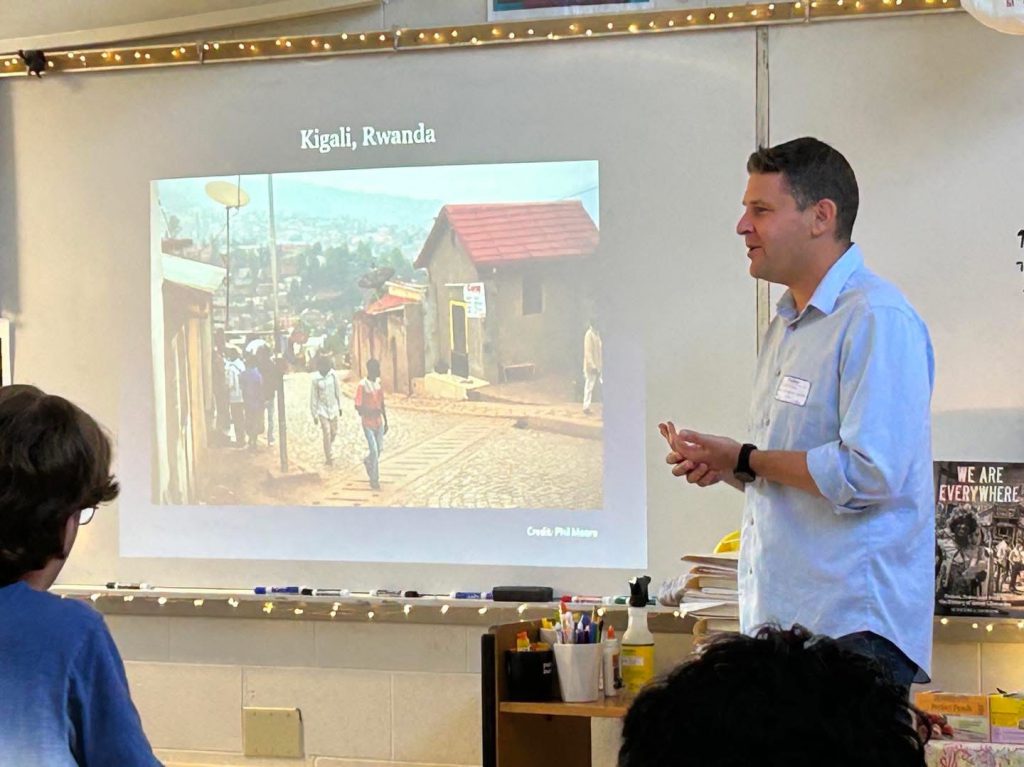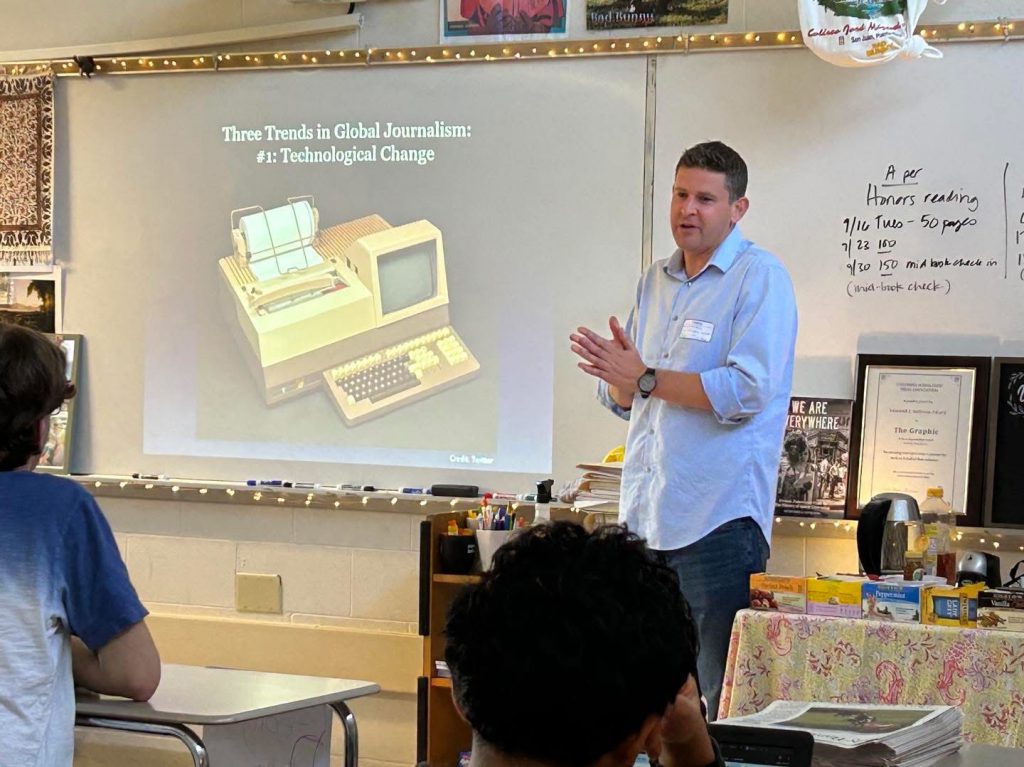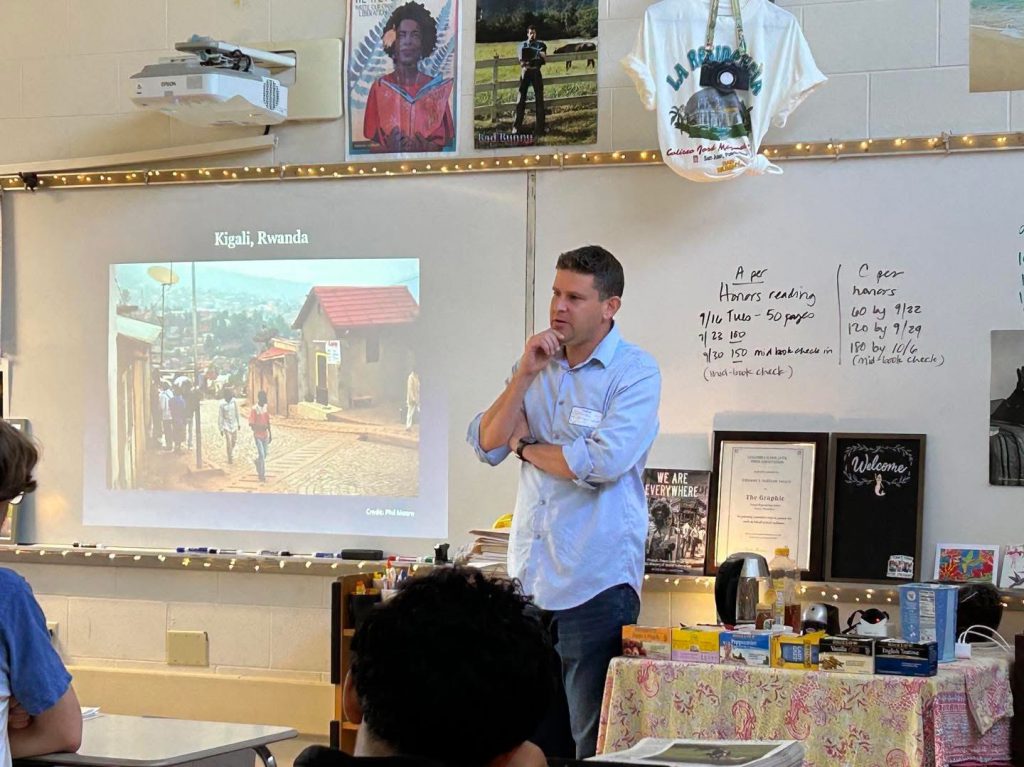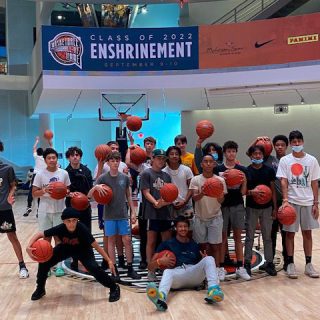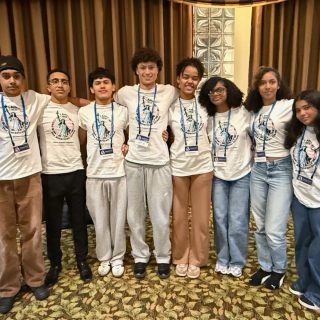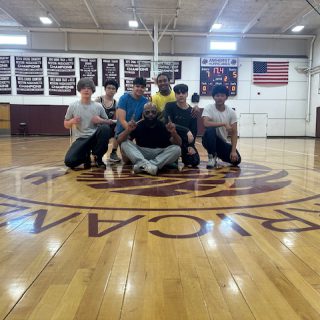Journalist from class of 2000 visits not just ARHS, but his teacher from 25 years ago
When Jonathan Rosen was a student at ARHS in 1999, he took a Journalism class with English Department Head Sara Barber-Just, who was finishing up her first year of what would be a decades-long career at ARHS.
Fast forward over 25 years later. This summer, Barber-Just was asked to give the ARHS class of 2000 a tour of the high school to kick off their 25th high school reunion festivities in town. She said yes and was thrilled to reconnect with her students from all those years ago, and to learn Rosen had made a life as an esteemed freelance journalist, writing for publications like The New York Times, MIT Technology Review, National Geographic, The Atlantic, The Boston Globe, and many other outlets around the world.
So Barber-Just invited Rosen to speak to her current students in Journalistic Writing, and, home for a spell between projects, Rosen jumped at the chance.
Barber-Just wanted to prep her students for the visit, so she had them read about Rosen on his website, jonathanwrosen.com. There, they learned that he is “a writer and foreign correspondent specializing in East Africa and Africa’s Great Lakes region,” and his work includes “longform articles, investigative features, travel dispatches, and profiles.”
Over the last 15 years, according to his website, he has “chronicled a fight to stop oil exploration in Africa’s oldest national park; profiled Africa’s last absolute monarch; investigated a first-of-its kind project to generate power from gas trapped in a Rwandan lake; and explored the rise of the African megacity though an in-depth look at the past, present, and future of Dar es Salaam.”
He also teaches a course on global journalism at Tufts University, where he earned his undergraduate degree before going to Johns Hopkins for graduate school.
When he arrived at Barber-Just’s class, in room 172, he shared a slideshow to guide his presentation called: The 21st Century Freelancer: A Glimpse into the World of Foreign Correspondence. He talked to students about three trends in global journalism, including technological changes, financial challenges, and governments becoming more hostile. He also noted that “at least 124 journalists were killed in 2024; 550 were detained as of the start of this year.”
But even with this dark backdrop, Rosen gave the students hope. They read two of his articles before the visit: “The Most Talented Runner of His Generation Takes the Unexpected Route Back Home” in the New York Times and “This Tanzanian city may soon be one of the world’s most populous. Is it ready?” in National Geographic, took notes about them, and discussed.
When Rosen entered the Journalistic Writing classroom, room 172 on the English hallway, he started by sharing his own story of what he did after high school and college, detailing the places that he visited and would eventually write about. Right after high school and college, Rosen taught social studies at a rural high school in Bomet, Kenya, called Sigor High School.
After college, Rosen “worked for a couple of years in communications at a Boston-area organization working in global health,” which got him into journalism. After working in communications, he then did his master’s degree.
“I did a bit of journalism during that period. I actually took a semester off to edit a travel magazine in Zanzibar and then returned to finish the program,” said Rosen.
As a freelancer, Rosen said he doesn’t have a specific company/organization that he works for; instead, he pitches his projects to news organizations, sometimes after flying to the place he wants to report and doing some groundwork to get his ideas fleshed out.
The students loved learning about Rosen’s journey as a journalist. In a thank you letter to him after, they thanked him for sharing about his residency in Rwanda, and others stated an interest in learning about how the rise in the use of AI was worsening.
Senior Maria Roof said it was “inspiring how dedicated” Rosen is to his job, “even though it’s so dangerous to be a freelance journalist right now.” Senior Aliyah Kenney thought his choice to be a journalism was powerful “given the current political situations regarding journalists in lots of countries.”
Rosen also shared stories about his personal life. While reporting for an article for National Geographic about a ceremony that would name newborn gorillas in Rwanda, he met his now wife, Yvette, who was attending the event with friends. Now, Yvette “has a company that works in a variety of African countries to improve access to education for students with disabilities,” said Rosen.
They had recently gotten married in the passing summer, and are planning to celebrate their wedding in Rwanda.
Barber-Just said she loved reconnecting with Rosen and his now-wife this summer and enjoyed having him visit her class. “It was such a wild experience to see a former student talking to a group of current students in the same class–a quarter of a century later,” she said. “I most loved how he shared information about the ways journalism is being threatened around the world while also talking about his drive to pursue important stories across Africa.”
“My takeaway was that we can’t stop the tide on some of these changes, but individuals absolutely can still invest in keeping journalism afloat through careful, detailed, ethical, and meaningful reporting,” she said. “This is such an important message for students to hear.”
